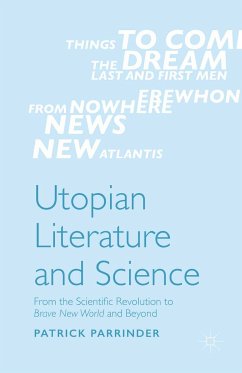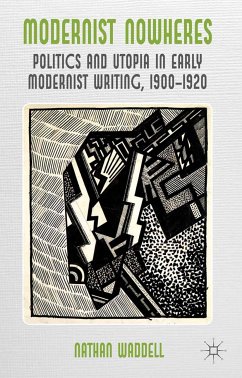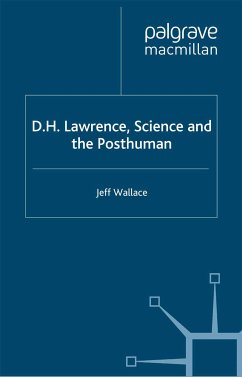
Utopian Literature and Science (eBook, PDF)
From the Scientific Revolution to Brave New World and Beyond
Versandkostenfrei!
Sofort per Download lieferbar
72,95 €
inkl. MwSt.
Weitere Ausgaben:

PAYBACK Punkte
36 °P sammeln!
Scientific progress is usually seen as a precondition of modern utopias, but science and utopia are frequently at odds. Ranging from Galileo's observations with the telescope to current ideas of the post-human and the human-animal boundary, this study brings a fresh perspective to the paradoxes of utopian thinking since Plato.
Dieser Download kann aus rechtlichen Gründen nur mit Rechnungsadresse in A, B, BG, CY, CZ, D, DK, EW, E, FIN, F, GR, HR, H, IRL, I, LT, L, LR, M, NL, PL, P, R, S, SLO, SK ausgeliefert werden.












